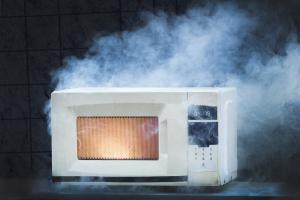
Understanding Louisiana’s Laws on Defective Household Appliances and Consumer Injuries
William P. Morrow, attorney at Morrow Law Firm in Opelousas, Louisiana, explained the core legal foundation behind these claims.
“Product liability cases involving defective household appliances often rely on the Louisiana Products Liability Act. This law defines the types of defects that may exist in a product and under what conditions a manufacturer or distributor may be held accountable,” said Morrow.
The Louisiana Products Liability Act (LPLA), codified in La. R.S. 9:2800.51 et seq., governs claims involving unreasonably dangerous products. It outlines four primary types of actionable defects: construction or composition defects, design defects, failure to warn, and breaches of express warranty.
A construction or composition defect refers to a product that deviates in a material way from its intended design or specifications, making it unreasonably dangerous. For example, if a batch of toasters includes one with faulty wiring that causes electric shock or fire, that unit may be found defective in construction or composition.
A design defect involves an entire product line that is unreasonably dangerous due to flawed engineering or planning. In such cases, the injured party must typically demonstrate that a safer alternative design existed and was both technically and economically feasible at the time of manufacture.
Failure to warn claims arise when manufacturers or sellers do not provide adequate instructions or warnings regarding the product’s risks. Household appliances that produce heat or emit fumes, for example, may require prominent warnings to reduce the risk of burns, carbon monoxide exposure, or other dangers.
The final category, breach of express warranty, applies when a manufacturer or seller makes specific claims about a product’s safety or performance that later prove untrue and contribute to an injury.
To pursue a claim under the LPLA, the plaintiff must show that the product was unreasonably dangerous and that the defect existed at the time it left the manufacturer’s control. Additionally, the product must have been used in a reasonably anticipated manner.
Household appliance injury claims often involve burns, electrocution, lacerations, or chemical exposure. Claims may arise from incidents involving exploding pressure cookers, overheating dryers, leaking dishwashers, or malfunctioning space heaters. The cause of the defect—whether due to poor quality control, inadequate testing, or a flawed warning—determines how liability is assessed.
Manufacturers, distributors, and retailers may all be named in legal proceedings depending on the circumstances of the case. Liability is not automatic; the burden of proof remains on the injured party to establish a causal connection between the defect and the harm suffered.
Timeliness is critical under Louisiana law. Most product liability claims are subject to a one-year prescriptive period from the date of injury. In some cases, the discovery rule may apply, allowing additional time if the injury or defect was not immediately apparent. However, product-related claims are also subject to a ten-year peremptive period from the date the product was first sold, placing a strict cap on potential claims.
Preservation of evidence plays a vital role in these cases. Damaged appliances, components, packaging, and receipts may be necessary to demonstrate the condition of the product and trace its distribution chain. Claimants are encouraged to avoid discarding the item and to seek documentation of any service history or product recalls.
Product recalls may strengthen liability claims by demonstrating that the manufacturer acknowledged a defect. The U.S. Consumer Product Safety Commission (CPSC) maintains a public database of recalled products, including household appliances. However, the existence of a recall is not required to file a claim under the LPLA.
Morrow Law Firm, led by William P. Morrow, John Michael Morrow, Jr., and Stephen M. Morrow, continues to monitor developments in product liability law and supports legal actions involving consumer injury. The firm provides representation in matters involving workplace injury, industrial accidents, and product-related harm.
Product manufacturers have a duty to ensure that goods placed into commerce are reasonably safe for their intended use. When that duty is breached and results in injury, Louisiana law offers legal remedies through the LPLA framework. Understanding the types of defects recognized under the law, the importance of evidence preservation, and the timelines for filing can significantly influence the outcome of a defective appliance injury claim.
Morgan Thomas
Rhino Digital, LLC
+1 504-875-5036
email us here
Visit us on social media:
Facebook
Distribution channels: Culture, Society & Lifestyle, Insurance Industry, Law
Legal Disclaimer:
EIN Presswire provides this news content "as is" without warranty of any kind. We do not accept any responsibility or liability for the accuracy, content, images, videos, licenses, completeness, legality, or reliability of the information contained in this article. If you have any complaints or copyright issues related to this article, kindly contact the author above.
Submit your press release

